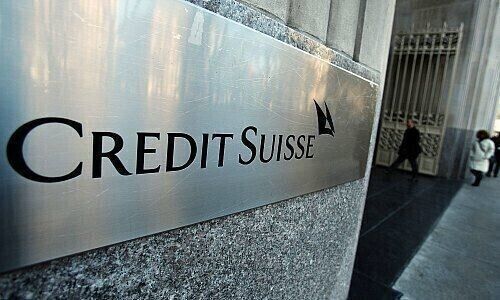$60 million of funds potentially laundered through Credit Suisse has been reportedly identified by a Swiss prosecutor who could deliver a formal indictment in the coming months.
More challenges are on the horizon for Credit Suisse with top Genevan financial crime prosecutor Yves Bertossa having found $60 million he believes was laundered through the Swiss bank, according to a «Bloomberg» report citing a June 8 hearing. At the meeting last week, Bertossa presented his case which included the identification of eight transactions that he alleges the bank let slide between 2008 and 2014, including transfers to a third party account.
Patrice Lescaudron was named as the central player who faked signatures and created dummy portfolio statements in order to illegally transfer millions of dollars, mainly from ex-Georgian Prime Minister Bidzina Ivanishvili, to cover losses in other client portfolios – a move that would lead to his conviction and imprisonment in 2018 over fraud and forgery.
Lone Wolf
Credit Suisse has repeatedly insisted that Lescaudron – who was released from prison early only to commit suicide in 2020 – was a lone actor with no support from any other employee at the bank in his crimes. But under Swiss law, lacking the necessary surveillance or organization to prevent acts of money laundering can be itself charged as money laundering.
According to Bertossa, a lack of oversight of Lescaudron and organizational defaults allowed money laundering to occur. A formal indictment could be months away as Swiss courts process the evidence in the case.
«All investigations into this matter conducted by the bank, FINMA and the criminal authorities since 2015 have shown that the former relationship manager was not supported by any other employee of Credit Suisse in his criminal activities,» Credit Suisse said in a statement this week. «In the concluded criminal proceedings against the former relationship manager, he was not convicted of money laundering.
Lacking Controls
If indicted, Credit Suisse could face yet another charge that the troubled Swiss lender lacked controls to prevent financial crimes.
In March, a Bermuda court ruled against an offshore Credit Suisse insurance unit in favor of Ivanishvili, claiming the bank had turned a «blind eye» by not taking adequate action to prevent Lescaudron’s fraudulent activities. Ivanishvili was rewarded over $500 million in damages to be paid by the bank which said it will appeal the verdict.
And in 2020, Credit Suisse was indicted in Switzerland for failing to prevent money laundering by a Bulgarian wrestler-turned-cocaine trafficker, who is believed to be Evelin «Cocaine King» Banev. The bank stood trial in February with a verdict yet to be delivered.


























